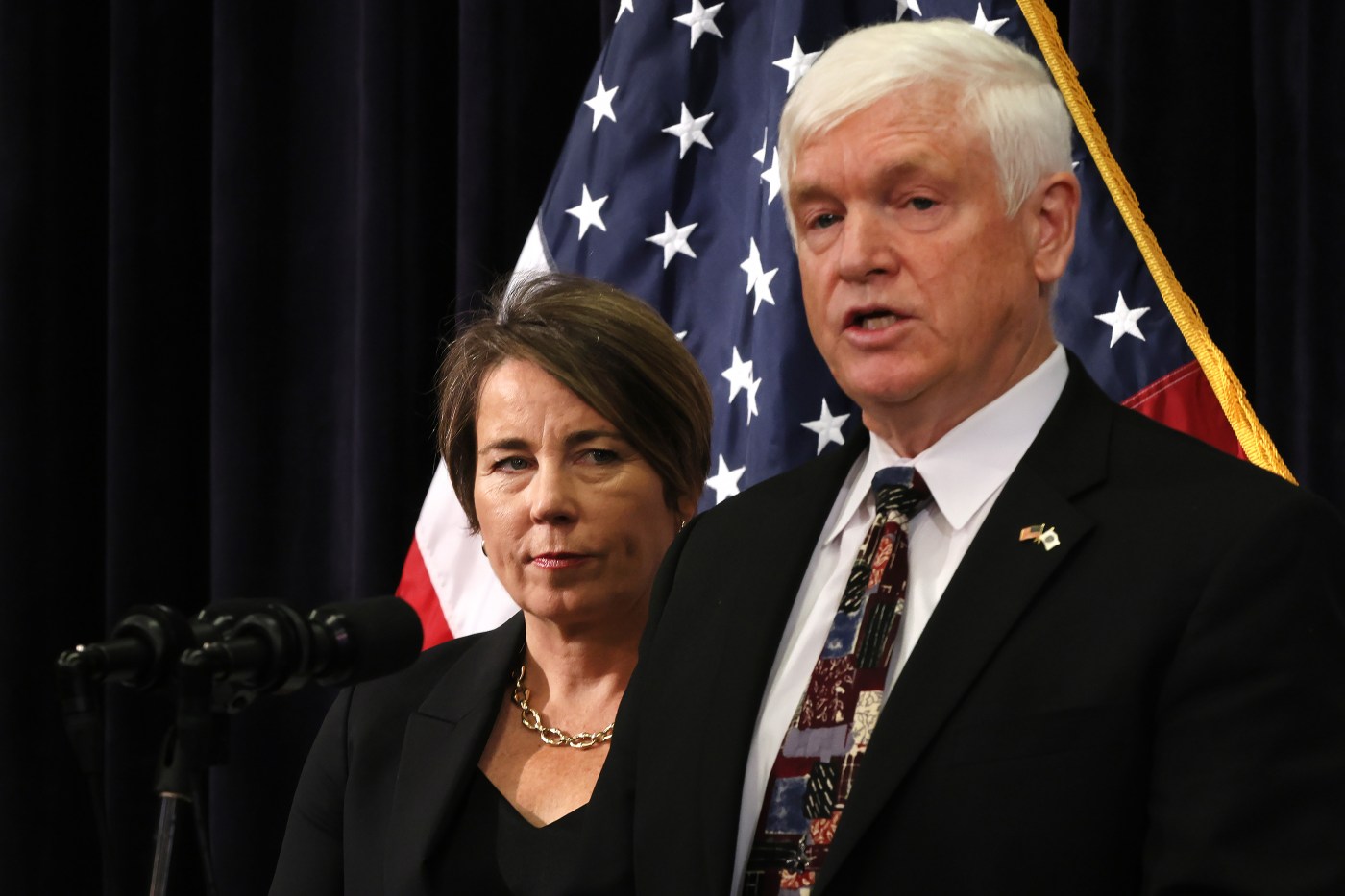
Healey uses $5M in federal cash to fund overnight shelters as system nears capacity
A local nonprofit organization will take $5 million in federal dollars from the Healey administration to set up overnight shelter sites for families and pregnant people just as Massachusetts’ emergency shelter system is expected to reach capacity this week.
But exactly when and where overnight shelter sites will house families is unclear, with Lt. Gen. Scott Rice, the state’s emergency assistance director, telling reporters Tuesday the funds will be shuttled to community-based organizations through a grant program that United Way of Massachusetts Bay will set up “later this week.”
United Way President and CEO Bob Giannino said once resources are made available the organization “will begin the process of reaching out and finding providers” to set up short-term shelters for families who find themselves on a state-run waiting list for emergency shelter placement.
“We’ve already begun to discuss and source potential partners as this program has been coming together. It’s certainly going to be a heavy lift in order to do that, but we have full faith that the nonprofit community, including faith-based organizations, homelessness and housing providers, and others can be called upon to step up,” Giannino said.
The need for overnight shelters comes after the Healey administration placed a judicially-approved 7,500-family-cap on the emergency shelter system, which houses both migrants and local homeless families and pregnant people.
Rice said he has a “positive indication” that community partners will help house migrant and local homeless families as the overnight shelter program gets up and running.
“As you know, Massachusetts is in a new phase of this challenge,” Rice said at the State House. “We do not have enough shelter space, service providers, or funding to continue to safely expand beyond 7,500 families. We expect to reach that limit on Wednesday or Thursday.”
The grant program is using “existing federal funds targeted at innovative housing and shelter initiatives,” according to the administration, and Rice did not say Tuesday what the exact source of the money is.
The Executive Office of Housing and Livable Communities reported 7,439 families in the emergency shelter system as of Monday, with 3,729 in hotels and motes, 3,648 at traditional sites, and 62 in temporary shelters like Joint Base Cape Cod.
More than 1,400 families were living in shelters where National Guard troops were providing services. The Healey administration said it plans to call up 150 more Guardsmen to work unstaffed shelter sites across the state and support a work authorization clinic next week.
After the Healey administration received the greenlight from a judge last week to move ahead with the shelter capacity, providers expressed concerns about the potential for families and children to find themselves sleeping outside as cold weather sets in.
Central Massachusetts Housing Alliance CEO Leah Bradley said when emergency shelter capacity is reached, it will be the first time where families who are eligible for shelters are not going to have a placement.
Bradley said she is hoping the state can find “overflow shelters, especially for the really cold nights.” The waitlist for emergency shelter placement the Healey administration plans to maintain is a “last resort option,” Bradley said.
“We’ve been working with the state, we’ve been working locally, and we’ve exhausted any other places to put folks. We as an organization, human resources-wise, we were at capacity in July,” Bradley told the Herald by phone Friday. “Nobody likes this solution. But with us being at capacity, both from a human resources, a financial, and a capacity issue, it’s really where we’re at.”
Massachusetts Coalition for the Homeless Associate Director Kelly Turley said it is often difficult to get alternative housing arrangements in place quickly for families who are in emergency shelter.
“But hopefully, we’ll see some more progress on the creation of congregate sites, for families that are approved for shelter, but not placed immediately, for families on the waiting list, whether that’s in state properties, federal sites, or in more community-based settings,” she told the Herald on Friday.
Top House Democrats proposed spending $50 million to create an overflow site for families who are on the waitlist for emergency shelter.
The idea was included in a $2.7 billion supplemental budget that is up for a vote Wednesday that included provisions requiring the site to be active within 30 days of the bill being signed into law or the emergency shelter capacity limit will be “revoked” until the location is “secured and operational.”

